Nowadays, it is important for us to study and implement the spirit of the 15th Party Congress of Zhejiang Province and give priority to driving socialist common prosperity with Chinese characteristics as well as the modernization of the Zhejiang Province further. On this occasion, sponsored by the "Double Eight Strategies" Research Institute of Zhejiang Province and the Zhejiang Political Science Society, and hosted by the School of Public Administration of ZUFE, the Annual Conference of the Yangtze Delta Political Science Association and the High-end Forum on Institutional Innovation and Common Prosperity were held at Longyou on June 25, 2022.
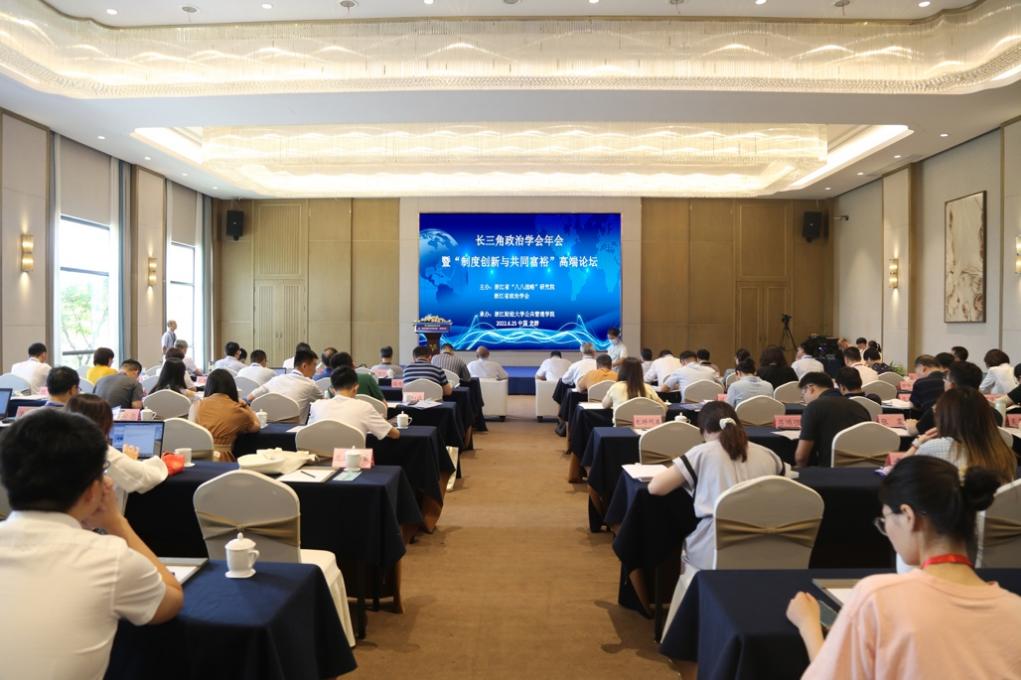
Zhang Shuhua, Director of the Institute of Political Science of the Chinese Academy of Social Science (CASS) and Executive Vice President of the Chinese Society of Political Science, attended the Conference via video. And more than 80 representatives from government departments, research institutions, and higher education institutions in the Yangtze Delta region presented themselves at this Conference at Longyou. Among them were Xu Jian, Vice Chairman of the Zhejiang Federation of Humanities and Social Sciences Circles (ZJFHSSC); Mao Shengtian, Member of the Party Group and Deputy Director of the Standing Committee of People's Congress of Quzhou; Yu Xunda, President of Zhejiang Political Science Society and Professor of Zhejiang University; Li Jinchang, CPC Secretary of the University; Lou Danqun, Member of the Party Committee, Minister of the Organization Department, Publicity Department and United Front Work Department at ZUFE. Here they jointly discussed the theoretical and practical issues related to institutional innovation and common prosperity. And the opening ceremony was presided over by Guo Jianming, Vice President of the Zhejiang Political Association and President of the School of Public Administration of ZUFE.
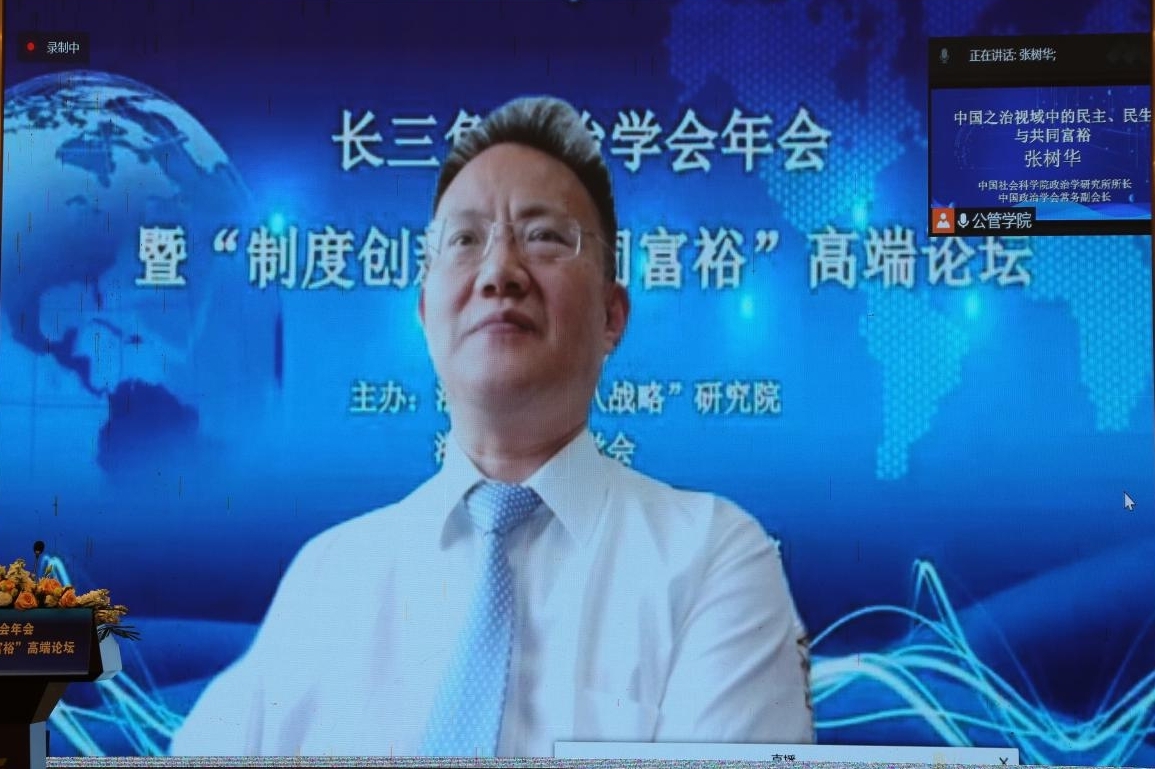
On behalf of the Chinese Political Science Association, Zhang Shuhua expressed his congratulation on the Conference. He said that common prosperity was one of the most important features of socialism with Chinese characteristics, and it was also a relentless pursuit of the Party and the people. Zhejiang province undertook the great mission of building a demonstration area of common prosperity with high-quality development. And he hoped that the academic community of the Yangtze Delta region could act together and think from the perspective of system building and innovation, thereby providing high-quality intellectual support for the great cause of common prosperity and the integrated and coordinated development of the Yangtze Delta region.
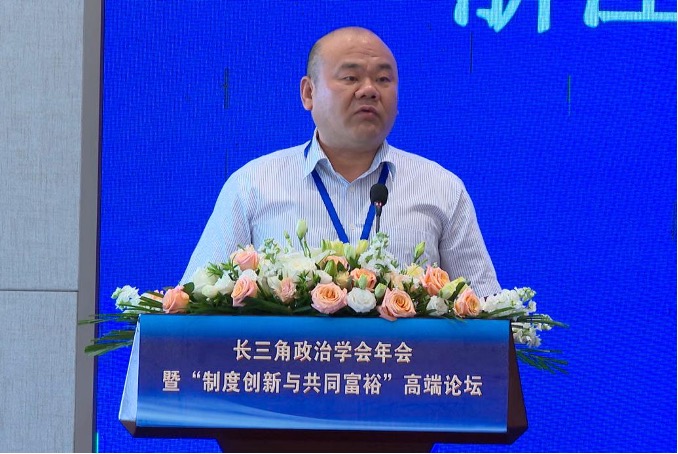
On behalf of ZJFHSSC, Xu Jian offered his congratulation on the success of the Forum. He said that since the establishment of the "Double Eight Strategies" Research Institute of Zhejiang Province, it had effectively served the role of a think tank. Moreover, its achievements played a crucial role in the decision-making process of the government of Zhejiang Province. He hoped that the meeting could provide theoretical guidance for promoting Zhejiang's "Two Priorities" Strategies, thus helping to align theoretical research with the design and practice of related systems, the call of the times, and the needs of social and economic development.
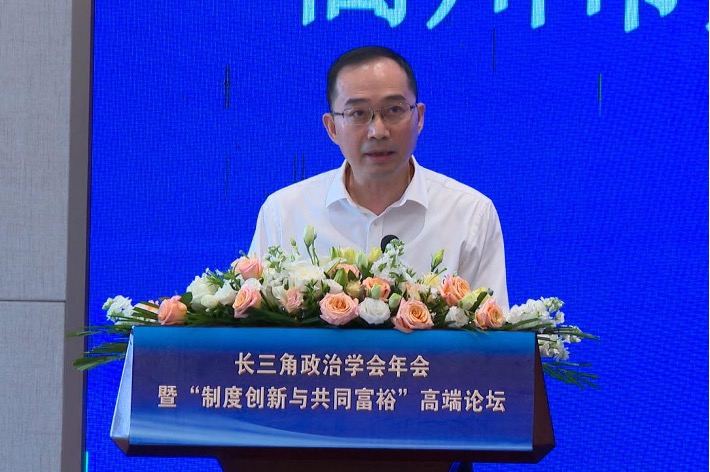
Mao Shengtian said that in its practice to drive Zhejiang's plan to realize high-quality development for common prosperity, Quzhou made another break-through in its overall intelligent-governance reform efforts by caring about the needs of and seeking advice from the people, imparting new energy to its economy and bringing people's living standard to a new level. He truly hoped that the Forum could be taken as an opportunity to deepen the cooperation between the local governments and universities, thereby helping with Quzhou's development.
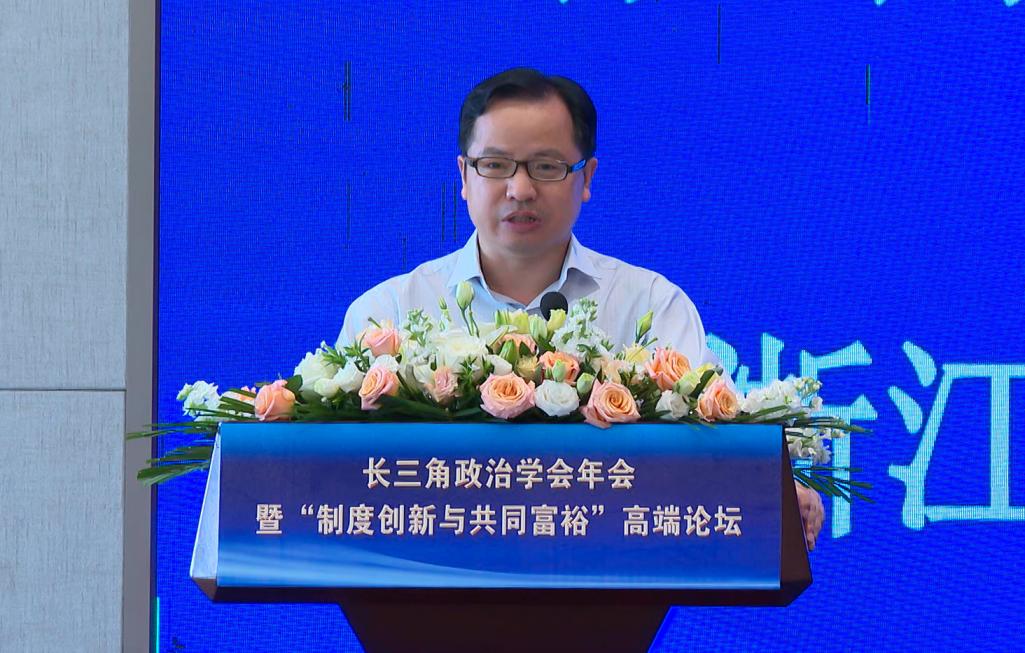
During the Forum, Lou Danqun introduced ZUFE and the "Double Eight Strategies" Research Institute to the audience. He said that ZUFE would take this event as an opportunity to deepen exchange and cooperation, expand research and innovation platforms, help local governments with their social and economic development, and contribute "ZUFE power" to the great cause of common prosperity.
Among those who delivered keynote speeches were Professor Zhang Shuhua, Director of the Institute of Political Science of CASS and Executive Vice President of the Chinese Society of Political Science; Professor Ding Huang of Wuhan University, co-convener of the Subject Consultative Group of Academic Degrees Committee of the State Council on Public Administration; Professor Sang Yucheng from Fudan University, Dean of Shanghai Federation of Political Science Association; Professor Lan Weiqing from Zhejiang University, Vice President of Institute for Public Policy Zhejiang Province; Li Li, Member of the Standing Committee of Longyou County Committee and Minister of Longyou Publicity Department; and Professor Li Jinchang, Vice President of National Statistical Society of China and CPC Secretary of ZUFE. These keynote speeches were presided over by Professor Lang Youxing from Zhejiang University, Vice President of the Zhejiang Federation of Political Science Association.
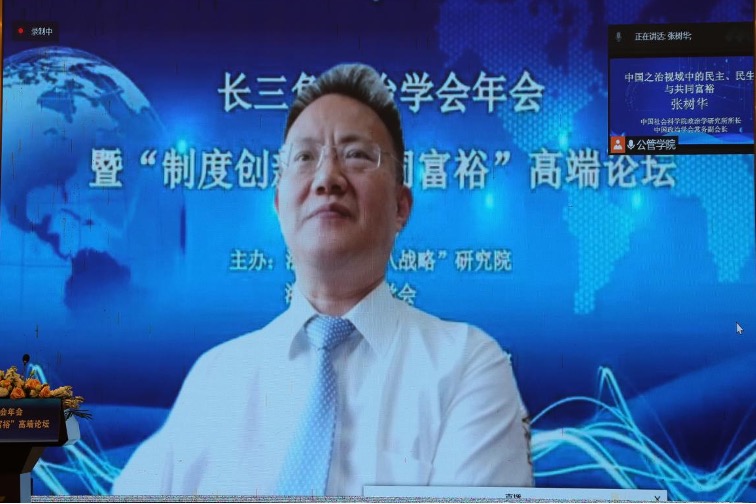
Professor Zhang Shuhua delivered a keynote speech entitled "Democracy, People's Livelihood and Common Prosperity from the Perspective of the Governance of China". Professor Zhang believed the people-centered approach was key to the CPC's political thinking, distinguishing a Marxist party from other political parties. He discussed the relationship between democracy, people's livelihood, and common prosperity in a systematic way. He argued that whole-process democracy should be a development-oriented and high-quality one.

Professor Ding Huang delivered a keynote speech entitled “The Dimension of Public Administration for Achieving Common Prosperity". He interpreted the connotation and essence of common prosperity from the dimension of public administration. Ding held that to realize common prosperity, we should properly handle the main contradiction between common prosperity and society and understand the relationships between common prosperity and the aspects of government responsibilities, social security, policy innovations, and third distribution.
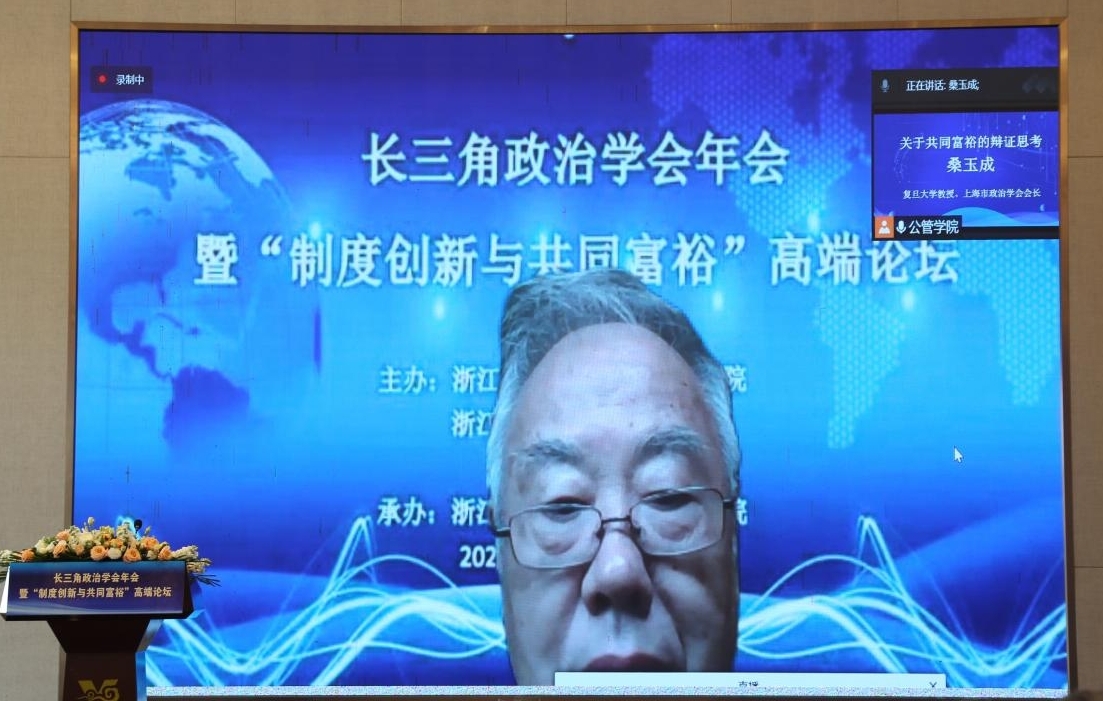
Professor Sang Yucheng delivered a keynote speech entitled "Dialectical Thinking on Common Prosperity." Sang believed that common prosperity, as a value orientation, was what we were looking for during our development. Thus we needed to correctly understand the principles, connotations, and requirements of common prosperity. Only in this way could we propose countermeasures and suggestions on the intents and requirements of common prosperity and find the way to achieve it in different regions from the perspectives of our mindsets and policies.
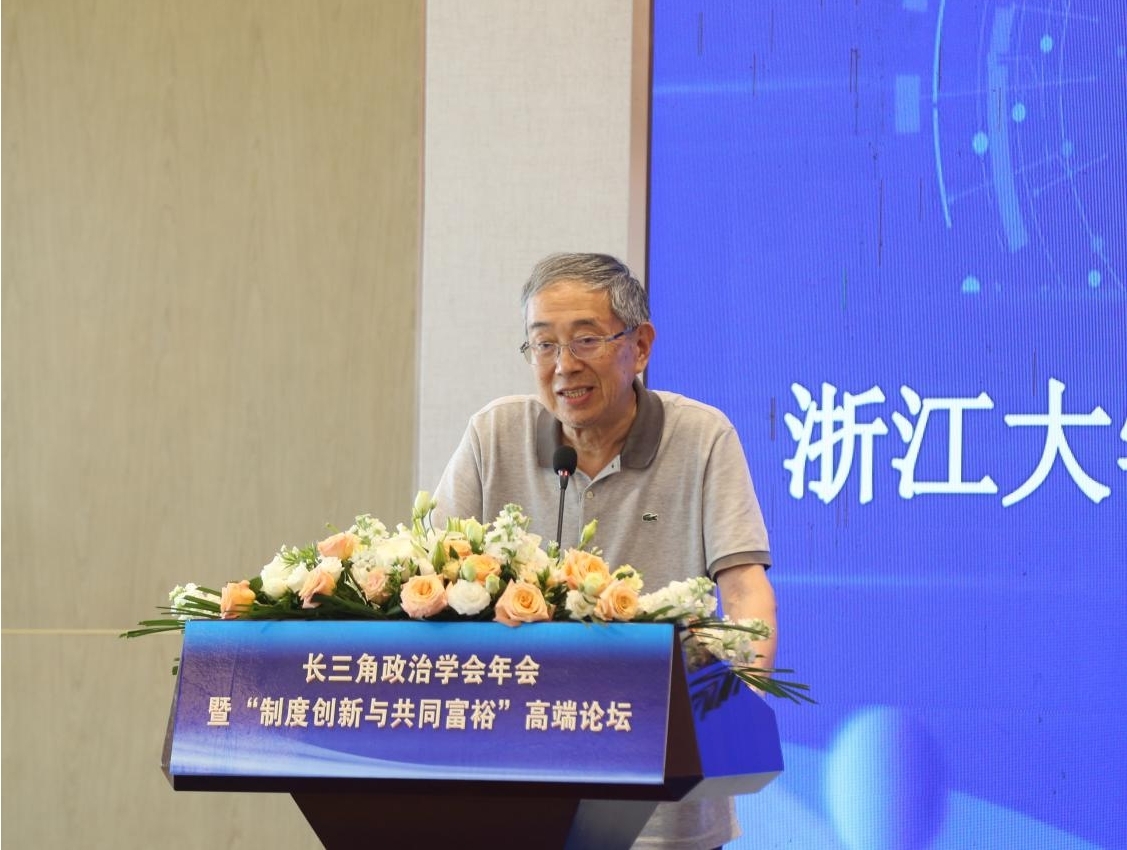
And Professor Lan Weiqing delivered a keynote speech entitled "The Guiding Role Public Policies in Common Prosperity." He believed that every social issue could eventually be translated into a public financial issue, and the same was true for realizing common prosperity. Then, Lan discussed common prosperity from the aspects of the balance between monetary income and public services, the coordination between material and non-material needs, the balance between efficiency and equity, and the consideration of both old and new residents living in Zhejiang Province.
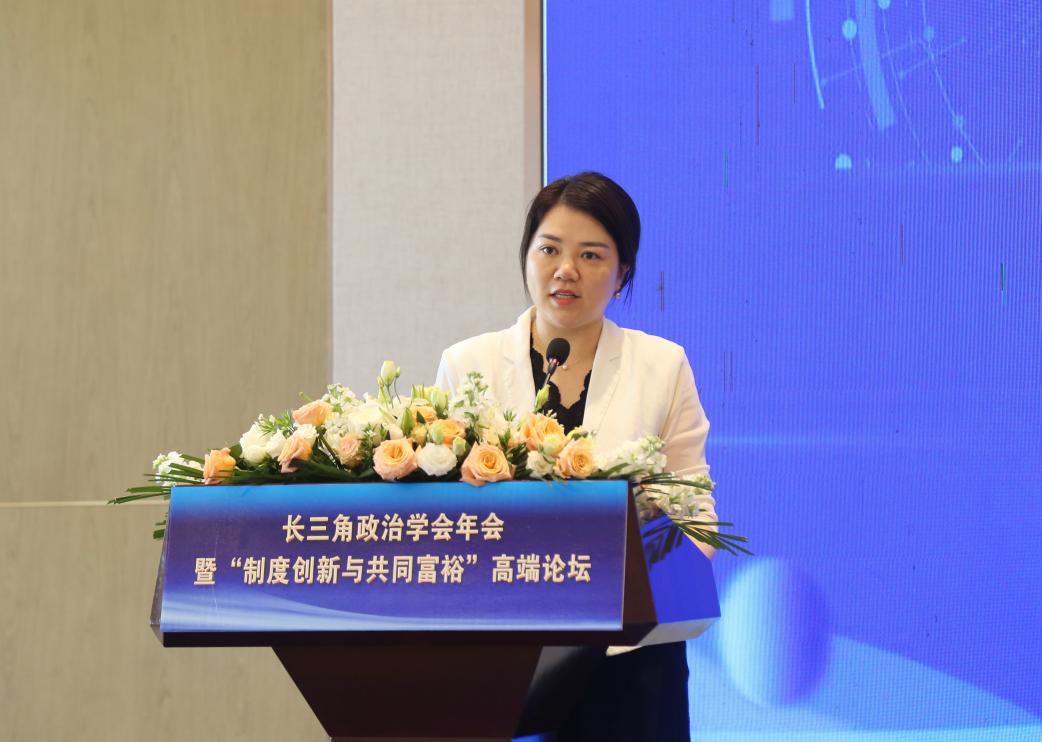
Li Li delivered a keynote report entitled "Longyou Unwaveringly Adhering to a Development Road with Local Characteristics." She briefly introduced the "six advantages" Longyou possessed in building the demonstration area of common prosperity in the areas of humanities, transportation, platform, industry, innovation, and people's livelihood, and also elaborated on the next-steps for Longyou to realize common prosperity in the future.
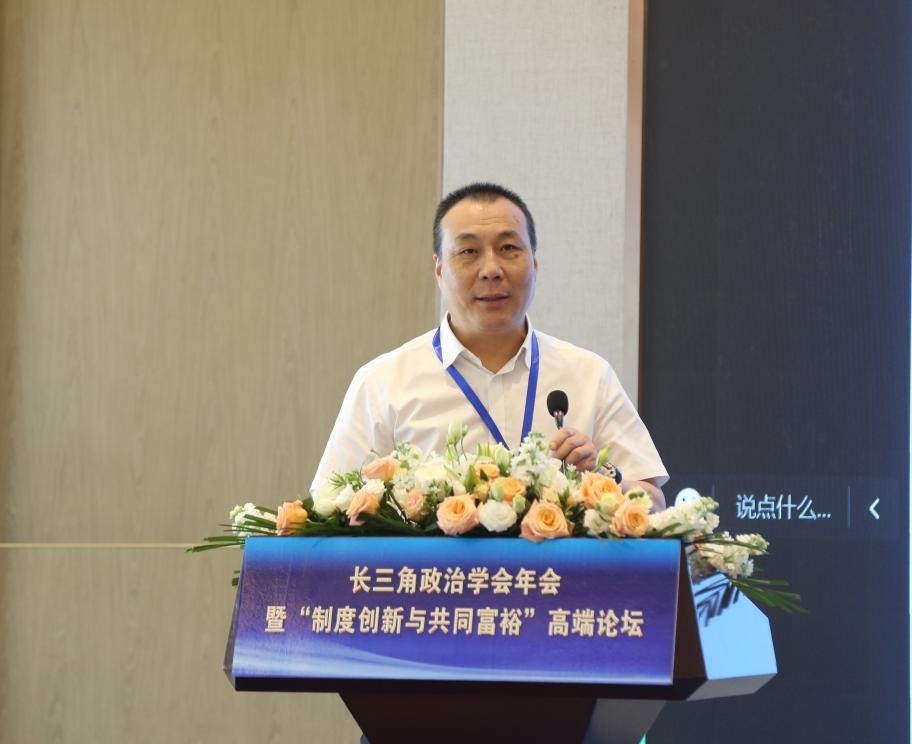
Professor Li Jinchang delivered a keynote speech entitled "Issues Related to Common Prosperity: A Statistical Approach". He said that the 19th National Congress of the Communist Party of China set the goal of achieving common prosperity for all people by 2050, which needed to be explored from the perspective of statistics. For example, what criteria were there for us to realize common prosperity, how to evaluate and judge whether it was realized, and how to monitor the process of common prosperity. Professor Li elaborated on the statistical monitoring and evaluation indicator system (the System) for common prosperity from the aspects of the statistical characteristics of common prosperity, the principles for constructing the System, and the framework for the System.
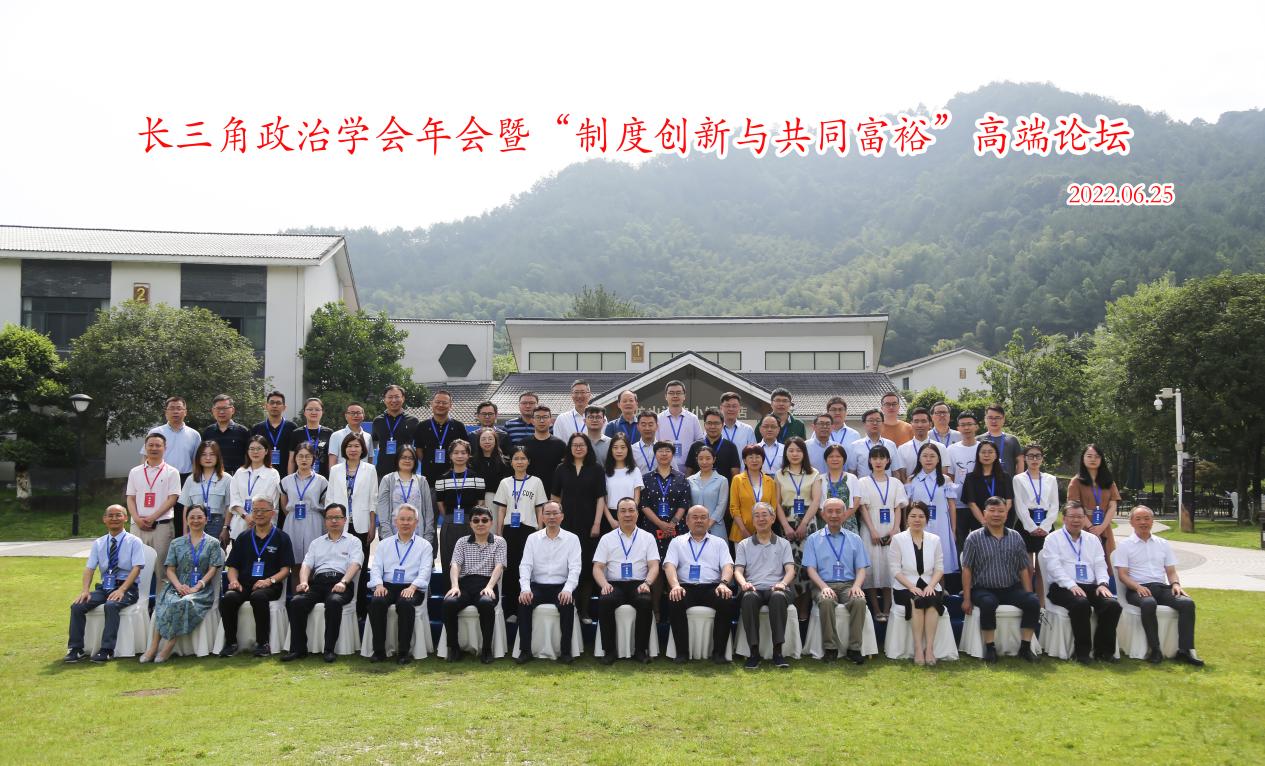
This Forum had two sub-forums, where experts and scholars exchanged views on "the path to common prosperity," "citizen participation," and “the driving forces of Party Building". Common prosperity is an essential characteristic of socialism and a significant agenda for China’s modernization cause. To achieve common prosperity, we need to realize the alignment of theory with specific system design. In its practice in building a demonstration area of common prosperity driven by high-quality development, Zhejiang explored institutional innovation in many fields and accumulated rich practical experiences. Through this conference, many scholars agreed that in promoting common prosperity through high-quality development, we should continue to promote institutional innovation and improve relevant institutional mechanisms to further ensure the realization of common prosperity.
